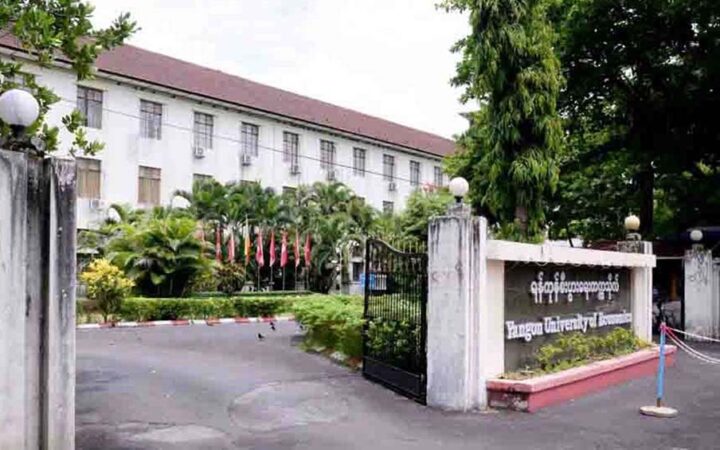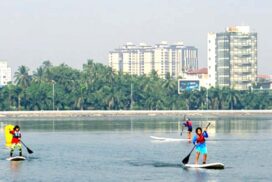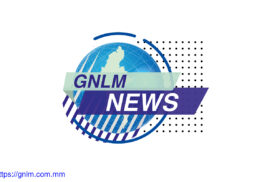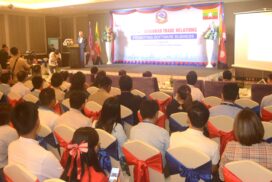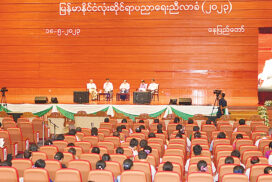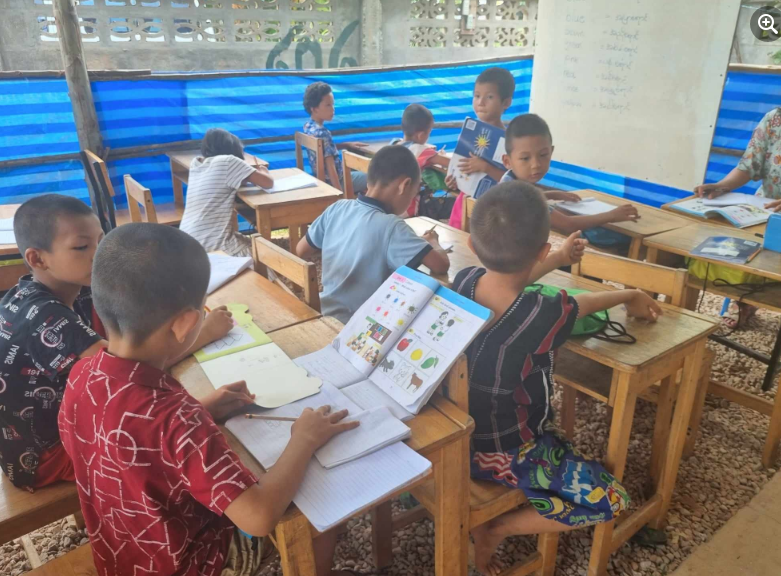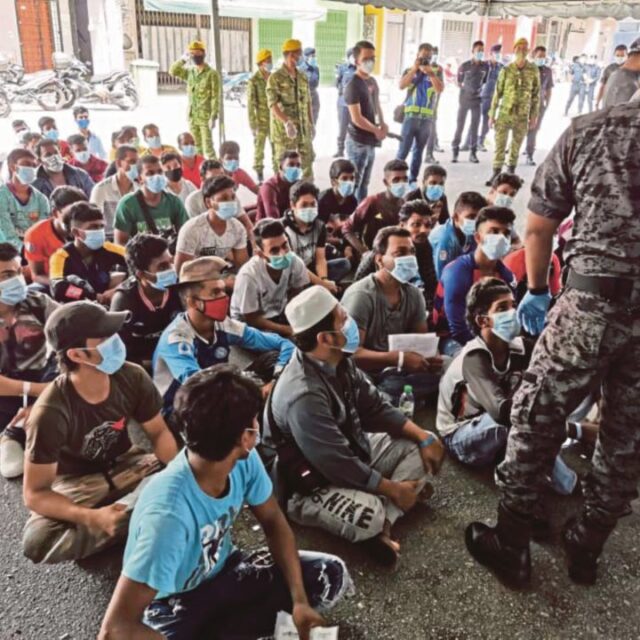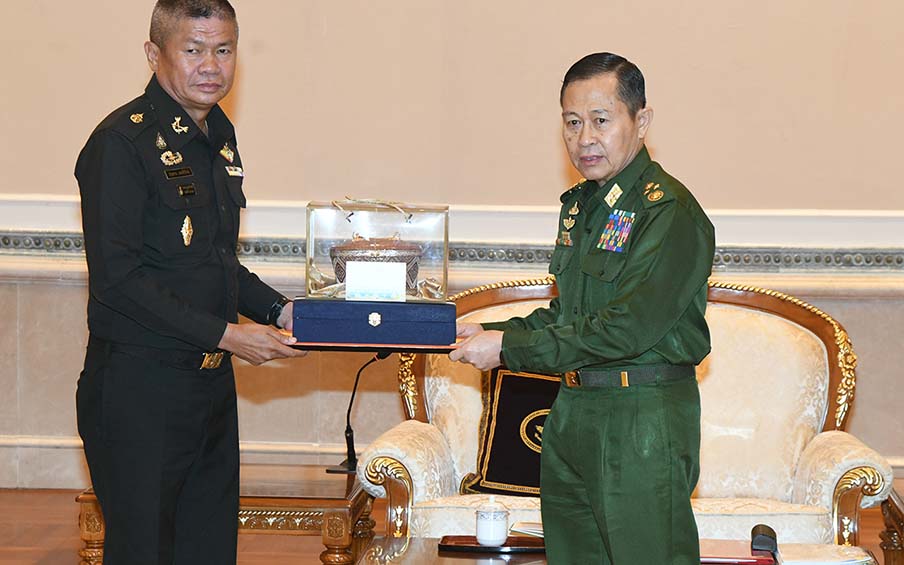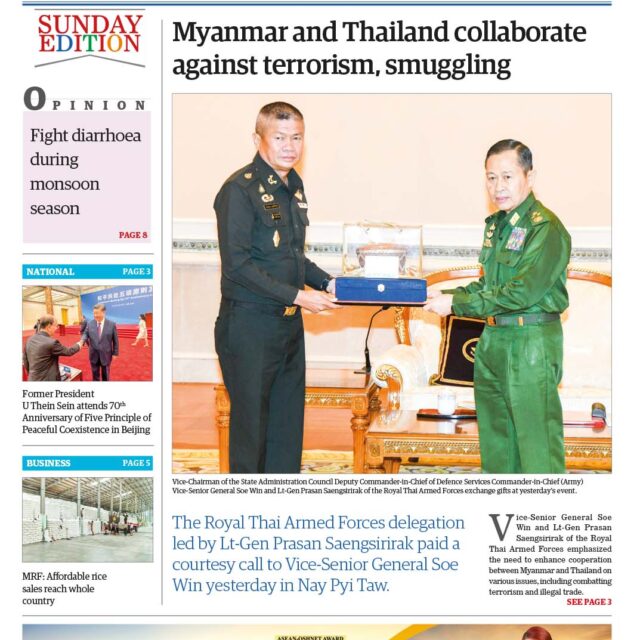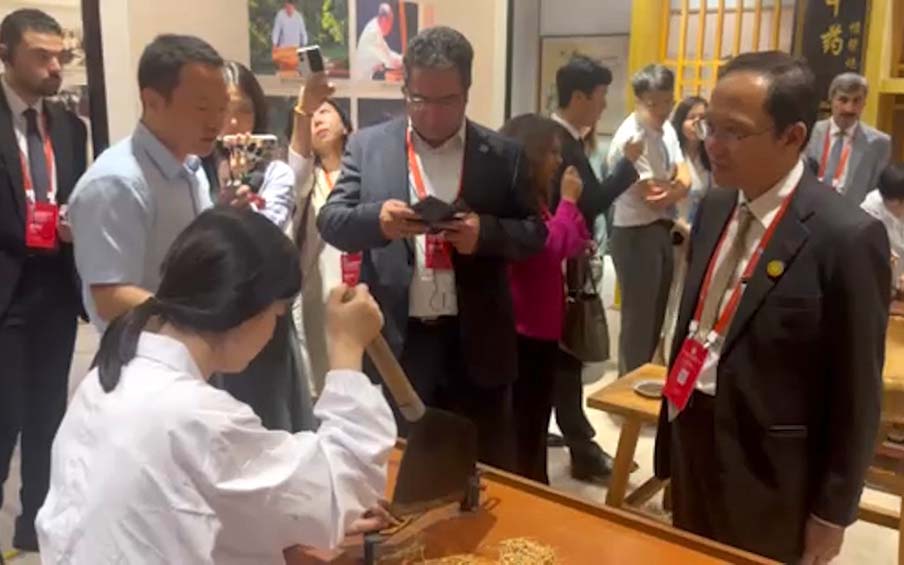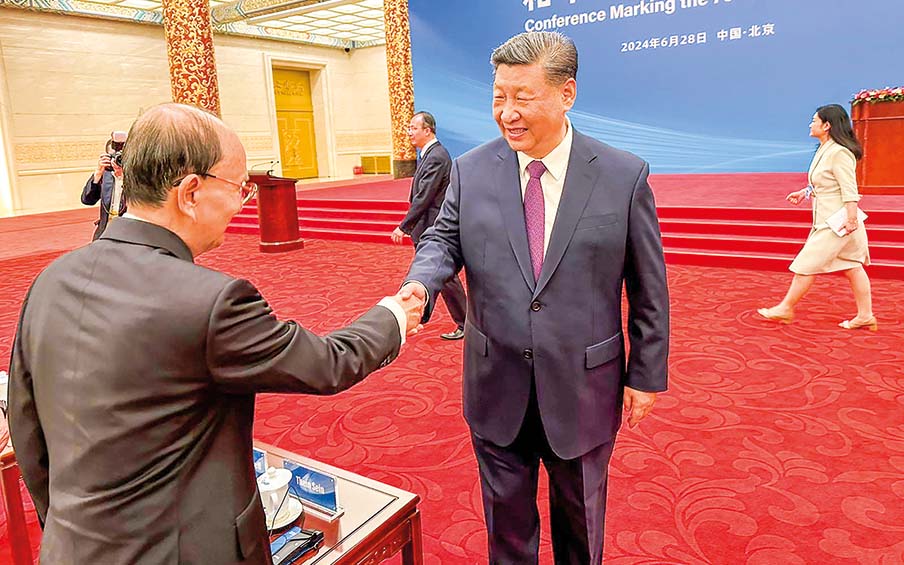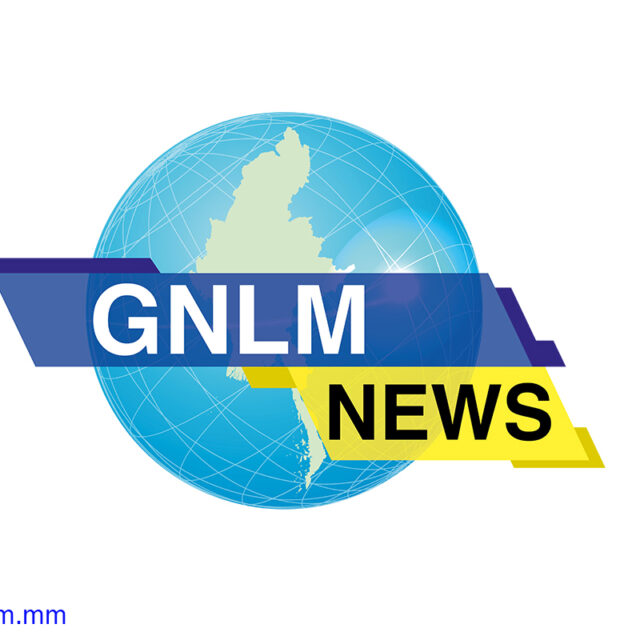This year marks a significant milestone in Myanmar’s academic history, the 100th anniversary of economics and business education. The journey began in 1924 when the Faculty of Economics was established at Yangon University, marking the start of structured economic education in the country.
The Beginning of Economic and Business Education in Myanmar
The inception of formal economic education in Myanmar traces its roots to 1924 when the Section of Economics (then the Faculty of Economics) was established at Rangoon University (now Yangon University). This marked the initiation of a structured academic pursuit aimed at comprehending economic principles, deciphering market dynamics, and fostering contributions to the nation’s economic advancement. Notably, in 1924, Professor Lionel Charles Robbins Jevons (L C R Jevons) played a pivotal role in establishing the Faculty of Economics. His contributions to developing the curriculum and setting up the necessary administrative and academic structures laid the groundwork for future generations of economists in Myanmar.
Post-World War II Era and the Emergence of Eminent Economists
The aftermath of World War II heralded a transformative phase in Myanmar’s economic education landscape. Dr Hla Myint, a prominent figure from Yangon University and a professor at the London School of Economics, gained international acclaim for his seminal contributions to development economics, particularly his groundbreaking “vent-for-surplus” theory. Alongside luminaries such as Ronald Findlay, Dr Khin Maung Kyi, Dr Maung Shein, Dr U Myint, and Dr Tin Maung Maung Than, among others. Myanmar saw the rise of distinguished economists whose scholarly work significantly influenced global economic discourse across various domains, ranging from international trade to economic reforms and governance.
Extension and Organizational Development
The Yangon University of Economics began as a Section of Economics under the Rangoon University (thereby Yangon University). The Section of Economics began offering commerce as a special subject in 1940 and courses in statistics in 1953. In 1955, a separate Commerce Department was established, and in 1956, a separate Statistics Department was established. In 1964, the institute became an independent tertiary institute with three academic departments and one separate research department. In 1987, the Research Department was transformed into the Department of Management Studies and another academic department, the Department of Applied Economics and Department of Applied Statistics, were created. The institute now has five major academic departments and four supporting academic departments: Burmese, English, mathematics and geography. It added not only a full-time MPA (2000), an executive MPA (2002), and MDevS (2004) but also a full-time MBA programme in 1995, an executive MBA (EMBA) programme in 2002, and an online MBA programme in 2007.
In 1964, a seminal development occurred with the establishment of the Institute of Economics, marking a significant milestone in Myanmar’s educational landscape. Initially supported by the Department of Economics at Yangon University, this institution evolved into the Yangon University of Economics, greatly expanding the scope of business studies in Myanmar. The university now boasts a modern and dynamic curriculum that includes a wide range of business courses, reflecting the evolving nature of the global economy and the multidisciplinary skills required by contemporary graduates.
To further enhance access to higher education in economics, Monywa University of Economics was established in 1993, followed by Meiktila University of Economics in 2001, serving the Central and Upper Regions of Myanmar. Additionally, the expansion of business-related education across the country has been bolstered by the establishment of two cooperative and management universities (Thanlyin and Sagaing), two cooperative colleges (Phaunggyi and Mandalay), and five cooperative accounting vocational schools (Magway, Mandalay, Taunggyi, Mawlamyine, and Pathein).
SAC Initiatives to Boost the Economy
The State Administration Council is actively promoting the nation’s economy by encouraging the growth of micro, small, and medium enterprises (MSMEs). This initiative aims to foster entrepreneurship, create jobs, and stimulate economic development. By supporting MSMEs, the government hopes to build a more resilient and diversified economy better able to withstand global economic fluctuations.
Looking Ahead: Envisioning the Future of Economic Education
As we commemorate a century of economic and related business education, it becomes imperative to gaze into the future. The swift metamorphosis of the global economy, propelled by technological innovations and globalization, necessitates a perpetual evolution of educational paradigms and pedagogical methodologies. Economics and Business Education graduates equipped with essential skills in management, business operations, marketing, banking, finance, insurance, and more are imperative to meet the forthcoming challenges.
Myanmar’s universities must adeptly navigate these transformations to equip students with the acumen and skills requisite for the challenges of the future economy. Moreover, to ensure long-term success and high-quality economic education, it is essential to cultivate skilled resource personnel. Investing in the development of faculty members and researchers is crucial for maintaining the academic standards of economic universities. This will help these institutions stay at the forefront of economic research and education, equipping students with the knowledge and skills necessary for the future.
Conclusion
The 100-year journey of economics and business education in Myanmar is a testament to the nation’s commitment to academic excellence. From its beginnings at Yangon University to the establishment of specialized economics universities, the journey has been marked by significant achievements and contributions. As we honour this legacy, we look forward to a future where economic education continues to thrive, driving Myanmar towards greater prosperity. The ongoing government support for MSMEs and the emphasis on cultivating skilled personnel and investing in the development of human capital will be pivotal in this journey, ensuring that Myanmar’s economic education system remains robust and forward-looking.
References
Memoirs of Professor Hla Myint (Professor, London School of Economics and Former Rector of Rangoon University) edited by U Myint (1st edition, December 2022, Burmese Woman Press/Sarpay)
Economics and Business Education by Daw Cho Cho Thein (Working Paper Series No 7.1 Ministry of Education/UNDP/UNESCO Education Sector Study Project) Myanmar Education Research Bureau. Yangon. February 1992. ( https://unesdoc.unesco.org/ark:/48223/pf0000144029 )
ဒေါက်တာမောင်ရှိန် [ဘောဂဗေဒပါမောက္ခ(ငြိမ်း)ရန်ကုန်စီးပွားရေးတက္ကသိုလ်] — ကျွန်တော့်ဘဝ ကျွန်တော့် အကြောင်း တစ်သက်တာ အတွေ့အကြုံ (ပထမအကြိမ်၊ ဒီဇင်ဘာ၊ ၂၀၁၅၊ ခေတ်ပြတိုက်စာပေ)
ဦးဘညိမ်၏ ဦးဘညိမ် (တော်လှန်ရေးကောင်စီဝင်ဟောင်း ဦးဘညိမ် ကိုယ်တိုင်ရေးအတ္ထုပ္ပတ္တိ) (ပထမအကြိမ်၊ ၂၀၁၄၊ သြဂုတ်လ၊ ခေတ်ပြတိုက်စာပေ)
Yangon University of Economics: https://yueco.edu.mm/ Yangon University of Economics – Wikipedia
Monywa University of Economics; Wikipedia https://en.wikipedia.org/wiki/ Monywa_ University_of_Economics
Meiktila University of Economics; https://en.wikipedia.org/wiki/Meiktila _University_ of_Economics
University of Yangon https://www.uy.edu.mm/ Detailed history of the establishment and evolution of the Faculty of Economics.

